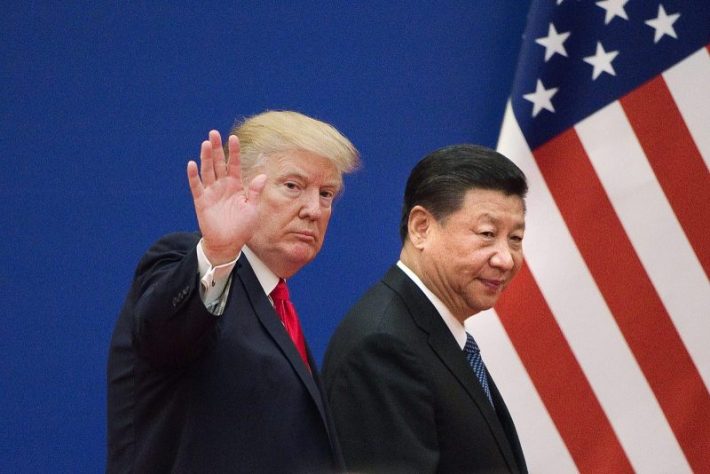
Former US President Donald Trump has reignited the heated debate over US aid, particularly the US Agency for International Development (USAID) and its funding to India. At the heart of his criticism is the allegation that India is exploiting American generosity by using taxpayer dollars earmarked for humanitarian purposes to boost voter turnout during elections.
This bold statement has sparked widespread domestic and international debate, raising concerns about the nature of USAID funding and the delicate balance that must be struck in international relations between accountability and diplomacy. Let’s dig deeper into what is happening here and why it matters.
All the points in this post
Donald Trump’s Criticism of USAID Funding for India
Donald Trump has never been shy about expressing his views on foreign policy, especially when it comes to issues where he sees the US being treated unfairly. In one of his latest tirades, Trump accused India of taking unfair advantage of America through USAID funding. In his view, the funds are being misused to help voters in India campaign for votes — a move he sees as directly benefiting the ruling party there while doing little to protect American interests.
His comments come at a time when questions are growing about whether some programs for international aid are aligned with U.S. priorities. Trump has cast the issue as yet another example of other countries capitalizing on America’s willingness to help without giving anything substantial in return. His sharp tone has resonated with some of his base members, who have long questioned the value of foreign aid. However, critics argue that such rhetoric overstates the complex diplomatic system and risks undermining decades of cooperation between Washington and New Delhi. To fully understand the gravity of Trump’s allegations, we need to take a closer look at what USAID does and how it operates around the world, especially in countries like India.

Understanding USAID: Purpose and Impact
USAID stands as a cornerstone of U.S. foreign policy, charged with promoting sustainable development, reducing poverty, and establishing democratic governance worldwide. Established in 1961 under President John F. Kennedy, the agency works closely with partner governments, nongovernmental organizations, and local communities to implement projects in areas such as education, health care, infrastructure, and disaster relief. Its primary goal is to bring about lasting change that benefits both the recipient country and the United States.
For decades, India has been among the largest recipients of USAID funding, receiving billions of dollars to improve living standards and address critical challenges such as malnutrition, access to clean water, and climate resilience. These investments are not just philanthropic; they are strategic. By supporting India’s growth and stability, the United States strengthens its alliance with a key democratic partner in South Asia—a region that is increasingly important in countering China’s influence.
However, despite its noble intentions, USAID often finds itself caught in the political crossfire. Critics sometimes accuse the agency of interfering in internal affairs or encouraging corruption. Supporters argue that strict oversight and transparency mechanisms ensure the responsible use of funds. So where exactly is the truth in this latest debate?
The Allegations Surrounding Voter Turnout Funding
At the heart of Donald Trump’s ire is the claim that USAID funds were used to finance efforts to increase voter turnout in India. Since foreign agencies are generally prohibited from interfering in another country’s electoral process, this would certainly raise policy concerns if true. But before jumping to conclusions, let’s look at the facts first. First, USAID categorically denies engaging in any activity related to electioneering or voter mobilization.
Their operating policy focuses strictly on nonpartisan development work, leaving electoral matters entirely outside their purview. Second, independent fact-checkers have found no credible evidence of USAID’s connection to specific voter turnout programs in India. Instead, much of the confusion stems from the confusion of legitimate civic education initiatives – such as teaching citizens about their rights to vote – with partisan campaigning.
However, misunderstandings can occur, especially in politically charged environments. Well-intentioned efforts to increase civic awareness may be inadvertently misinterpreted as attempts to influence election outcomes. However, clarity is essential to prevent further escalation.

India-U.S. Relations Under Scrutiny
This is not the first time that India-US relations have faced turbulence. Over the years, the two democracies have navigated everything from trade disputes to defence deals, while maintaining a strong foundation built on shared values and mutual interests. Yet, all too often, such disputes threaten to strain the relationship.
From India’s perspective, allegations of misuse of aid funds can seem like an affront to national sovereignty. After all, India is no longer the struggling economy it once was; today, it has one of the fastest-growing GDPs in the world and plays a key leadership role on the world stage. Many Indians view foreign aid less as a donation and more as cooperation, emphasizing equality over dependency.
Meanwhile, as this story unfolds, Americans may wonder whether their tax dollars are making a difference abroad. Such disputes highlight the inherent tension of foreign aid: balancing generosity with pragmatism. As allies, both countries must navigate these waterways with caution to preserve trust and cooperation.
Public Reaction and Political Implications
Not surprisingly, Donald Trump’s comments have sparked mixed reactions in the political arena. Conservatives in the United States have expressed scepticism, portraying foreign aid as a wasteful expenditure that could be better spent domestically. Progressives, however, have pushed back against scapegoating vulnerable populations for domestic woes. They argue that cutting aid would hurt the most vulnerable and weaken America’s global leadership. In India, the response has varied widely depending on political affiliation. Supporters of the ruling Bharatiya Janata Party (BJP) have criticized Trump’s comments, claiming he is engaging in political manoeuvring ahead of the upcoming elections.
Opposition parties have seized on the opportunity to criticize the government, questioning whether any conditions attached to foreign aid compromise India’s autonomy. Globally, observers have noted that the escalation of rhetoric risks derailing otherwise productive partnerships. The stakes for maintaining a stable alliance, especially between the United States and China, have never been higher, given the intensity of geopolitical competition.
Analyzing Trump’s Rhetoric
Love him or hate him, Donald Trump’s knack for stirring up controversy is unparalleled. His portrayal of foreign aid as exploitation reflects a broader worldview rooted in his “America First” philosophy. He believes that any international agreement should prioritize U.S. interests over all else, even if that means redefining established principles of cooperation and reciprocity. While this approach appeals to voters frustrated by perceived inequality, it ignores the nuanced reality of global interdependence. Foreign aid is not just a donation—it is an investment in peace, prosperity, and security. Done right, it builds goodwill, opens markets, and counters the influence of adversaries. Cutting off aid indiscriminately can backfire, alienating allies and emboldening rivals.
Moreover, portraying entire nations as opportunists risks oversimplifying complex relationships. For example, through trade, technology, and talent exchanges, India contributes significantly to the expansion of the US economy. To portray it as a mere beneficiary ignores the co-existence of their partnership.
The Importance of Foreign Aid in Modern Diplomacy
Foreign aid serves multiple purposes beyond immediate humanitarian relief. It builds bridges, fosters understanding, and lays the groundwork for future cooperation. Consider how the Marshall Plan funds after World War II helped rebuild Europe, and laid the foundation for NATO and decades of transatlantic unity. Or how the US-led initiative PEPFAR in the fight against HIV/AIDS saved millions of lives and increased America’s soft power worldwide.
Similarly, USAID’s work in India exemplifies the transformative potential of smart, targeted aid. These initiatives, which benefit both societies in tangible ways, range from eradicating polio to empowering women entrepreneurs. They remind us that helping others ultimately helps ourselves—a principle worth remembering amid heated debates.
End
As the dust of Donald Trump’s recent attack on USAID funding for India begins to settle, several lessons emerge. First, openness and communication are essential to avoid misunderstandings about the goals and impact of foreign aid. Second, constructive dialogue—not inflammatory rhetoric—is key to resolving disagreements among allies. Finally, recognizing the interconnectedness of our modern world underscores the enduring relevance of foreign aid as a foundation for effective diplomacy.
Whether you agree with Donald Trump’s position or not, one thing is clear: Navigating the complexities of international relations requires nuance, patience, and a commitment to shared progress. Only then can we hope to build a brighter future—not just for Americans or Indians, but for all of humanity.






